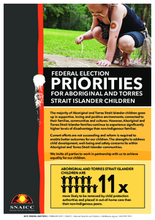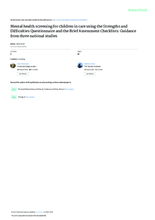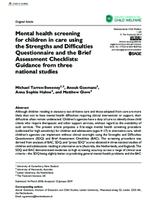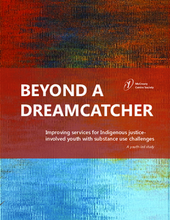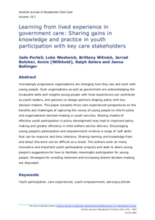Displaying 281 - 290 of 597
This study will determine where disparities in child protection involvement exist among Aboriginal and non-Aboriginal children and characteristics associated with infant removals.
This brief from SNAICC – National Voice for our Children highlights the issue of the disproportional numbers of Aboriginal and Torres Strait Islander children in out-of-home care in Australia, which has reached "national crisis proportions," and outlines key steps that need to be taken to address this issue.
This article outlines the arguments made in recent litigation undertaken by the Public Interest Advocacy Centre (PIAC) on behalf of young people who requested access to legal audits conducted on their files by the New South Wales (NSW) Department of Family and Community Services (FACS).
This systematic literature review examines how the construct of cumulative harm is understood and operationalized within current Australian child protection legislation, policy, and practice and situates this within an international context.
The present article proposes a first-stage mental health screening procedure (calibrated for high sensitivity) for children and adolescents (ages 4–17) in alternative care, which children’s agencies can implement without clinical oversight using the Strengths and Difficulties Questionnaire (SDQ) and Brief Assessment Checklists (BAC).
The present article proposes a first-stage mental health screening procedure (calibrated for high sensitivity) for children and adolescents (ages 4–17) in alternative care, which children’s agencies can implement without clinical oversight using the Strengths and Difficulties Questionnaire (SDQ) and Brief Assessment Checklists (BAC).
The primary aim of a recent qualitative study was to optimise grandparent-grandchild connectedness after child safety concerns.
This youth-led study sought to capture the perspectives of Indigenous youth who had been involved in the criminal justice system (or who were at high risk of such involvement), and who had accessed substance use treatment and/or had experienced barriers to accessing substance use services.
This paper presents three care experienced perspectives on the benefits and challenges of capturing the voices of young people to inform policy and organisational decision-making in youth services.
In Australia, the emerging model of child welfare policy and practice emphasises 'permanency and lifelong connections with birth families'.

